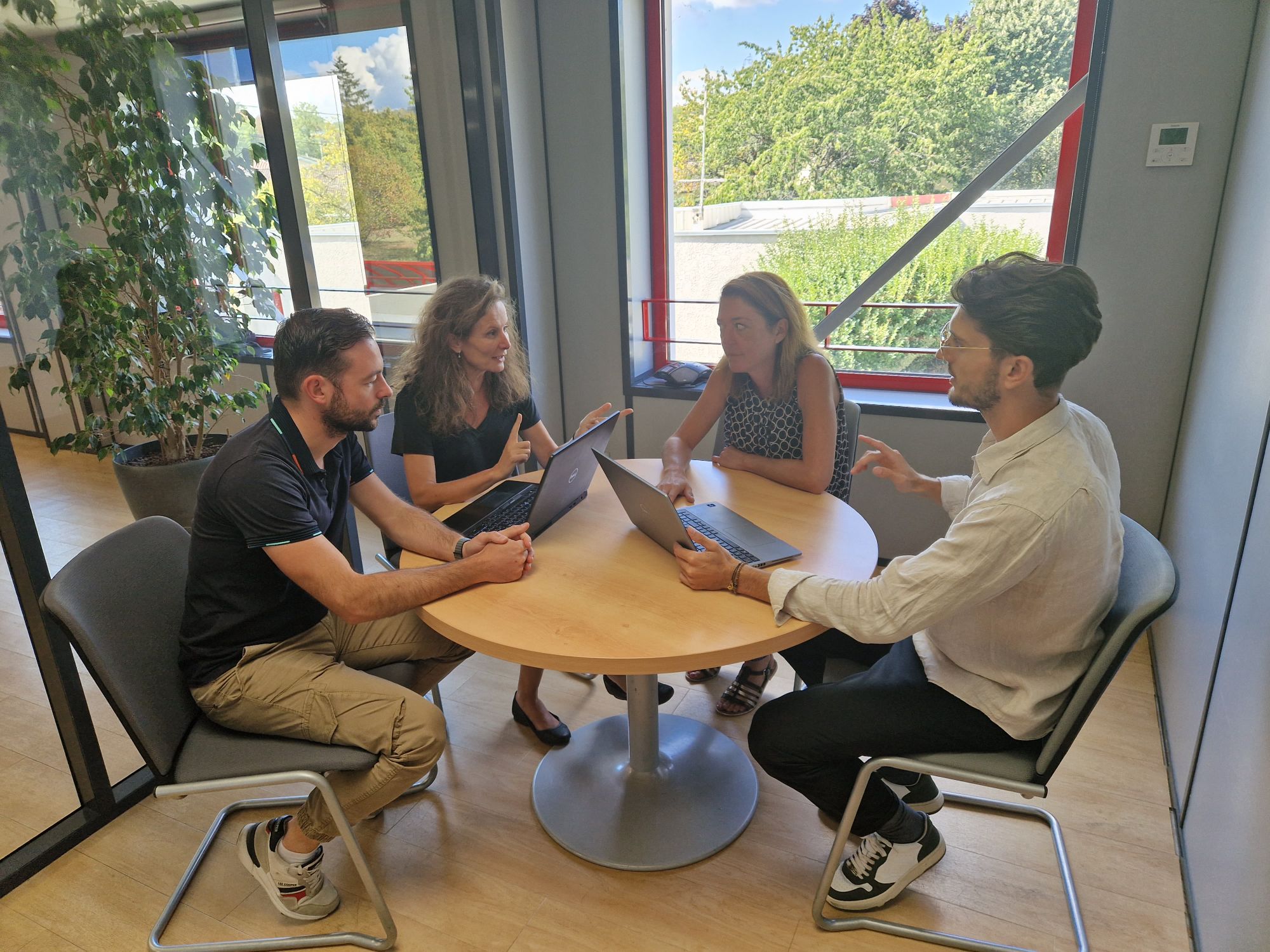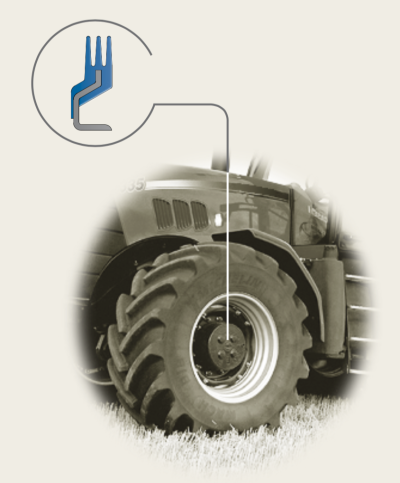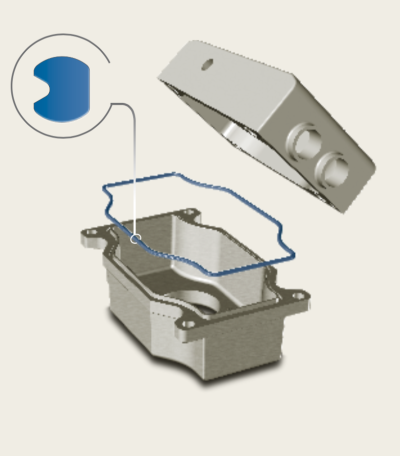Developments - R&D
Feasibility study
During a client's development project, Techné engineers provide advisory support: the profile is optimized based on the chosen manufacturing process. Seal design, material, and tolerances are reviewed with the client.
Several factors influence material and specific compound selection: elastomer type, crosslinking agents, hardness, compression set, etc. Each compound possesses unique characteristics. Depending on the application, fluids in contact, and desired mechanical properties, Techné suggests the suitable compound.
With its knowledge and mastery of processes, Techné positions seal plan in areas with minimal impact on sealing function. The execution plan is submitted to the client for approval.
Elastomeric components are toleranced based on the chosen process and in accordance with prevailing international standards. It should be noted that elastomers are flexible and deformable, rendering standards for plastic and metal parts inapplicable.
For drawing preparation, centered tolerances are recommended. Due to the molding process, mold fabrication, and material shrinkage, material savings cannot be achieved through eccentric tolerances.
Techné's technical service prefers to work with client's 3D drawings (centered dimensions) in STEP/STP format for tooling development.

Specific client requirements
When a client has a clear profile idea for their application, Techné contributes its expertise:
- Comprehensive review of requirements (dynamic/static, fluids in contact, temperature, pressure, standards, and certifications)
- Optimization of sealing profile
Example: Pollution seal for agricultural machinery
- Validation of seal through testing
- Operating parameters (pressure, speed, temperature)
- Result characterization: verification of leak absence at specified frequency
- Optimal abrasion-resistant material selection
- Surface treatment recommendation for mating part
- Profile optimization for improved sealing lip flexibility
- Seal validation through testing

Functional requirements specification
- Examination of client's functional requirements
- Proposal of one or more sealing solutions
- Quotation for prototype and production
Example: Electronic card housing seal
- Static sealing from exterior to interior
- Wide temperature range
- High-pressure wash-resistant
- Suitable for automated assembly
- Tailored profile design
- Selection of environment-compatible compound
- Addition of T-Lub® surface treatment for eased automated assembly

Prototyping
Prototyping aims to characterize sealing, save design time, and avoid modifications on the final mold during mass production. Techné offers various prototyping processes.
Machined prototypes
Prototypes must meet the following criteria for machining:
- High hardness: 83 IRHD for elastomers, 90 to 95 IRHD for thermoplastic polyurethanes (TPU)
- Revolving parts (milling, drilling, tapping feasible)
- Minimum radius of 0.4 mm
- No tooling cost
- Very short lead time
Cut-out prototypes
Through its Chromex cutting division, Techné manufactures elastomeric sealing elements through automated cutting. Suited for flat gaskets, this process creates most 2D profiles, 1 to 15 mm thick, depending on material.
Stereolithography
Techné offers prototypes created using a silicone mold obtained through stereolithography. Resin PU or silicone parts have mechanical properties akin to elastomers. This process handles complex 2D and 3D profiles.
Prototype mold
Designed for compression processes, it features a reduced cavity count. Advantages include:
- Improved representation of production parts
- Same material blend as production
- Reticulation parameter validation
- Economical, adaptable, and quick execution
Quality monitoring
Techné provides series parts with the following certificates upon request:
- 2.1 - Statement of conformity to order without test results
- 2.2 - Statement of conformity to order with nonspecific inspection results
- 3.1 - Statement of conformity to order with specific inspection results
Initial Sample (IS) parts are the first series-molded pieces from the tooling. They serve as a basis for process and tool qualification and validation. These EI are generally accompanied by a submission file or PPAP (Production Part Approval Process).
Depending on part criticality, a requirement level (1, 2, or 3) is established with the client. Techné provides a quote for documentation, which may include:
- VDA cover page
- Dimensional inspection
- Material inspection
- Drawing
- Process FMEA
- Production flowchart
- Control plan
- Process capability
- Inspection means list
- R&R (reproducibility and repeatability)
- Safety data sheet
- Material data sheet
- IMDS declaration (International Material Data System)
- DET sheet (Description of Packaging and Transport)
- Certificate (as mentioned above)
- Capacity summary
- Risk mitigation plan
- Tooling photo
